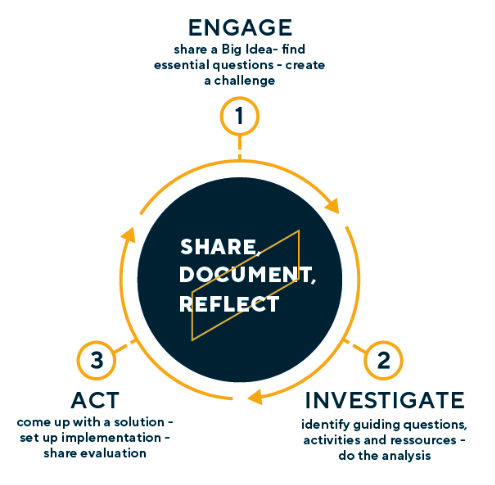

Today, the regions of the world affected by the coronavirus (COVID-19) are transforming. In economic terms, new habits, legal, political, cultural and other rules based on a lower social contact interaction with other people are forming. In the long term perspective, the global pandemic will change not only how we live, work, eat, and spend our free time, but also how we learn; it will shape the future in the new economic context.
“Roughly for the next two years, until a vaccine is invented or immunity is formed, we will be accompanied by feelings of heroism, satisfaction, disappointment, and reconstruction. The changing environment will make us form new habits. Every day it will be harder for us to get back to what it used to be. This doesn’t mean that the world will get worse or better. It’s just going to be different,” says Asta Daunorienė, the Head of EDU Lab Centre for Training and Learning Competencies, Associate Professor at the Kaunas University of Technology (KTU) School of Economics and Business.
Behavioural habits developed during quarantine will also affect decisions related to university activities. Improvisation in the economy will not only lead to survival conditions but also a revision of the value provided, and thus of the value obtained.
Facing the global crisis, Europe’s largest companies invest in logistics, remote surveillance, storage, the development of virtual beauty services and other innovative solutions. Education institutions are also looking for alternative solutions to ensure an efficient and high-quality study process.
By participating in the European Consortium of Innovative Universities (ECIU) for many years, KTU is developing an innovative educational model at European level. ECIU alliance is creating ECIU university with an open and flexible system based on challenge-based learning (CBL).
Challenge-based education for future challenges
CBL is a learning method based on solving real-world challenges. This approach is built on learning from experience framework and encourages cooperation between students and different stakeholders: scientists, businesses, public and non-governmental organisations. It aims at defining powerful ideas, asking thoughtful questions, identifying, exploring and solving challenges. How can challenge-based education help universities in a low touch economy?
Scientists around the world researching innovation suggest taking four steps: assessing the impact of the situation, developing a strategy, not being afraid to take risks, and implementing your ideas.
“This will help solve the challenges that lie ahead. For a student who is just starting a career path, it’s not so easy to stay ahead of innovation. A young person needs not only theoretical knowledge but also experience. Also, in various crises, to adapt his knowledge and skills to solve real-world challenges”, says Daunorienė.
Andrea Brose, Head of Challenge-Based Teaching Activities at ECIU University and Head of the Centre for Teaching and Learning at the Hamburg University of Technology, says that challenge-based teaching framework is flexible enough to be optimised for different circumstances, so it can be adapted to individual needs.
“The approach follows a specific structure, which comprises three key steps: engage, investigate and act. The challenge has to motivate students. Here begins the engagement part. When working on the ‘Big Idea’, for example, health or public transportation, engagement is the basis for a satisfying process. All the participants – teachers, students and external partners – make sure they agree on the last question to work on. The investigation makes sure they all are ‘on the same page’ and contribute with their knowledge and skills concerning the ‘Big Idea’. It could be possible to realise their research during this phase“, says Brose.
Different activities lead to successful ideas
The construction of finding a solution to a challenge is an important element in the challenge-based learning process; however, there are more different activities included. Stakeholders involved in finding a solution not only use gained knowledge but also learn from other experiences. They create innovative solutions and test them in the real world.
It is a process where all learners, including students, social partners and even lecturers, acquire different knowledge and develop skills to construct systems that will ensure successful implementation of innovative ideas in the future.
“Challenge-based learning can be the key to understanding the impact of the situation and solutions for the value chain, industry, consumers and ultimately society. No one can predict the future, one can only prepare for it. That is why the challenge-based approach will help meet the uncertainty and look for fresh opportunities”, says Daunorienė.
Students will be invited to meet the first ECIU University challenges this Autumn.



































